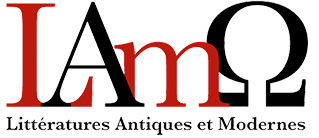
Shane Lillis
Professeur agrégé d’anglais et docteur en lettres modernes
Littérature française et anglophone, XIXe-XXe, art, cinéma. Traduction. Représentations de la médecine, nihilisme thérapeutique, psychiatrie ; Représentations du corps ; Écritures de l’histoire et de la guerre ; Langue, traduction, et identité culturelle et politique.
Courrier électronique : Shane Lillis
Articles de cet auteur
-

Since 1839... Eleven Essays on Photography
Clément Chéroux / traduit par Shane Lillis
This volume offers a selection of essays by the renowned photography historian Clément Chéroux. Chéroux, appointed chief curator of photography at the Museum of Modern Art (MoMA) in New York in 2020, takes on a variety of topics, from the history of vernacular photography to the influence of documentary photography on Surrealism. The texts, published together in one volume for the first time and newly translated into English, reflect the breadth of Chéroux’s thinking, the rigor of his (…)
-

The Birth of the Idea of Photography
François Brunet / traduit par Shane Lillis
A milestone work that examines the democratic idea of photography and its expansion in common culture, particularly in the United States ; generously illustrated.
This influential text by French historian and theorist François Brunet considers the invention and history of photography as the birth of an idea, rather than a new type of image. This “idea photography” combines a logical theme—that of an art without artistry—and the democratic political promise of an art for all. Officially (…)
-

The Eye of History
Georges Didi-Huberman / traduit par Shane Lillis
An exploration of the interaction of aesthetics and politics in Bertolt Brecht’s “photoepigrams.”
From 1938 to 1955, Bertolt Brecht created montages of images and text, filling his working journal (Arbeitsjournal) and his idiosyncratic atlas of images, War Primer, with war photographs clipped from magazines and adding his own epigrammatic commentary. In this book, Georges Didi-Huberman explores the interaction of politics and aesthetics in these creations, explaining how they became the (…)
-

Atlas, or the Anxious Gay Science
Georges Didi-Huberman / traduit par Shane Lillis
« Aby Warburg’s Mnemosyne Atlas (1925–1929) is a prescient work of mixed media assemblage, made up of hundreds of images culled from antiquity to the Renaissance and arranged into startling juxtapositions. Warburg’s allusive atlas sought to illuminate the pains of his final years, after he had suffered a breakdown and been institutionalized. It continues to influence contemporary artists today, including Gerhard Richter and Mark Dion. In this illustrated exploration of Warburg and his (…)


